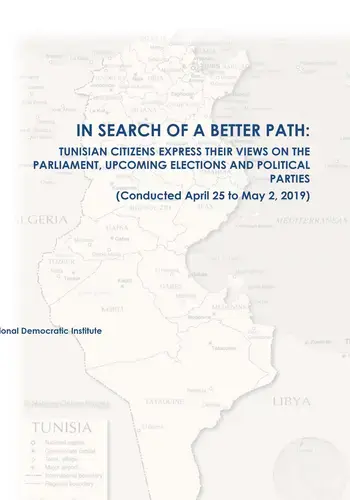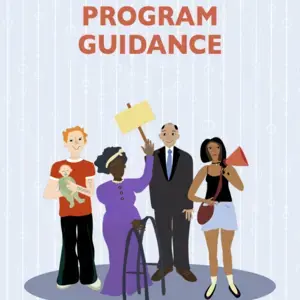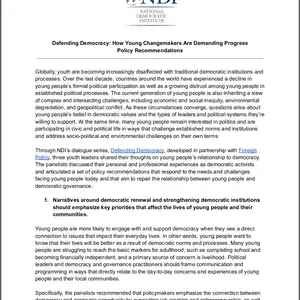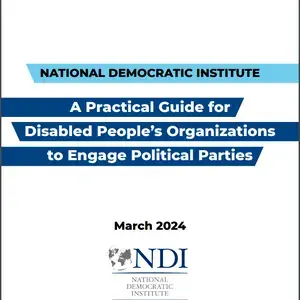After having been postponed on many occasions for technical and political reasons, Tunisia held municipal elections May, 6, 2018. More than 53,000 candidates, representing 2,074 lists all over the country, ran for seats on municipal councils. Municipal elections represented an important landmark for the implementation of Article Seven of the Tunisian Constitution. As a result, the national government has begun to delegate power and responsibilities to the municipal councils, in a process of decentralization that will last for Many years.
Nearly a year removed from the municipal elections, Tunisians of all political persuasions and all different walks of life regard their government with disillusionment and cynicism. In light of a poor economy and perceptions of political deadlock, voters are frustrated and their trust in politicians and the Parliament is running thin. Tunisians are looking for genuine achievements which could have a positive and direct impact on their daily life. Many have lost all interest in what they see as pointless politicking, but Many others are asking for more direct contact with their political leaders. Confronted by a lack of concrete achievements by their government, citizens could use the forthcoming elections to vent their frustrations, either through a decision to boycott the elections altogether, or by casting a vote for dramatic change to the national political landscape.
Beyond their significance as a milestone of democratic transition, the municipal elections also highlighted new trends in Tunisian politics. In its final report, the Tunisian Instance supérieure indépendante pour les élections (the ISIE, or Independent Higher Authority for Elections in English) confirmed that more votes were cast for independent lists of candidates than for any political party (32.2% overall). Historic gains were also observed for women and young candidates, with 47.5% and 37.2% of the vote, respectively. However, the same elections were also characterized by an unprecedented level of abstention; the participation rate amounted to 33.7% of registered voters and represents about half of the turnout for 2014 and the Constituent Assembly elections of 2011.
Within a few months, Tunisia will witness another round of historic elections. On October 6, 2019, Tunisian voters will head to the polls to elect the next People’s Representatives Assembly (PRA). They will cast their ballots again four weeks later, on Sunday, November 17, to elect the President of the Republic.
In the focus group discussions recently convened by NDI, nearly all participants expressed a desire to turn the page on the current political moment. They wished to see more accountable political leaders, and more responsive institutions working to address the Many structural challenges facing Tunisia today. In a departure from the recent past, many participants expressed nostalgia for the years before the democratic transition. While none openly wished for the return of authoritarian rule, they lamented the failure of the transition to achieve their desired goals, and were circumspect in their assessment of recent gains in freedom. With views ranging from near-total disillusionment to cautious optimism, Tunisians are longing for bold, effective leadership to deliver on the promises of the revolution.




